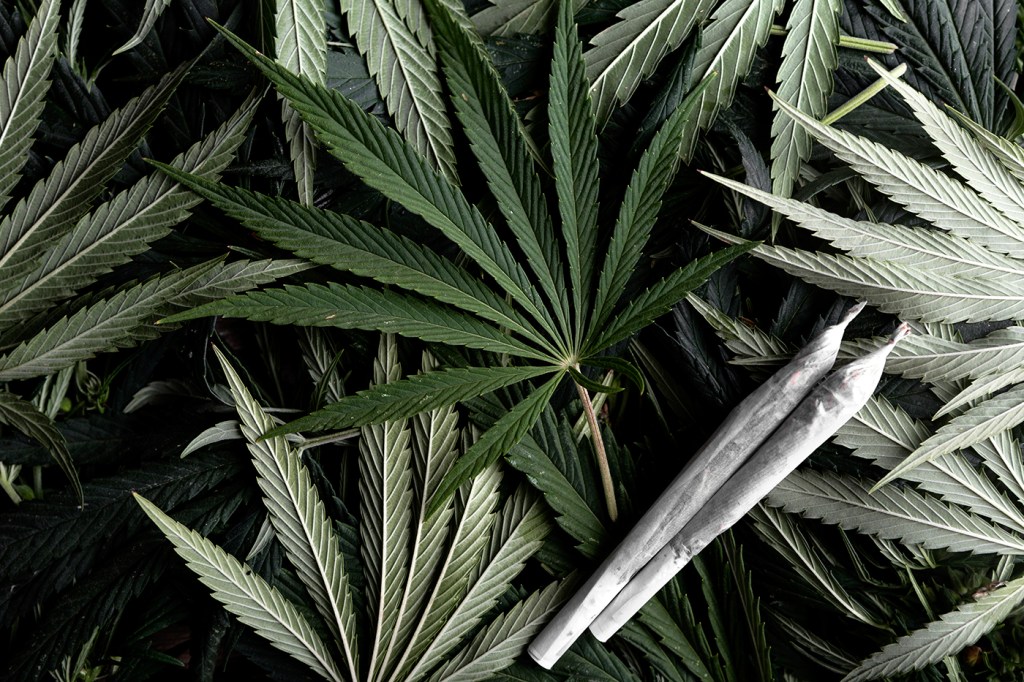Rescinding federal marijuana enforcement guidelines could spark ‘chaos’

This month, Attorney General Jeff Sessions rescinded four Justice Department policy memos regarding federal enforcement of laws relating to marijuana in states where it has been legalized.
The memos, drafted during the Obama administration, instructed the Justice Department to “use their discretion not to enforce federal law for marijuana users who were in compliance with state law,” said Leo Beletsky, associate professor of law and health sciences at Northeastern.
So, what does their rollback mean for states that have legalized—or, as in Massachusetts, that are in the process of determining the legal framework for—the drug? The short answer is: no one really knows.
Beletsky, an expert in drug law and policy, suspects the change will “throw the entire industry into chaos.”
Here, he explains what we do and don’t know as well as what he expects moving forward.
What we know
The policies were fragile, at best
The policy memos put in place were never federal law. States with legal marijuana—recreational or medicinal—were always breaking federal law.
“Over time, there became this patchwork of federal workaround as legislators tried to deal with the fact that states and localities were innovating with policy,” Beletsky said. “President Obama decided not to pursue a fundamental change in legislation, but what that meant was that these solutions were easily repealed. It was an architecture of solutions that wasn’t a very stable structure.”
Though they weren’t set in stone, the federal policies served two purposes, Beletsky said. They guided what U.S. attorneys did throughout the country in cases related to marijuana and “gave additional cover not to the letter of the law, but to the spirit of the law to just lay off marijuana enforcement in general.”
The personnel in chief federal prosecutors’ offices is changing
During the Obama administration, U.S. district attorneys “were somewhat more receptive to drug policy reform,” Beletsky said. But the people being appointed to those jobs by the Trump administration are “increasingly less so.”
The combination of rescinding lenient policies and staffing stricter federal prosecutors more than likely means the federal government will engage in a crackdown on the marijuana industry, Beletsky said.
Producing, processing, selling marijuana is illegal
It’s big distributers that stand to lose the most under the new guidelines, Beletsky said. Similarly on the hook are the landlords whose buildings house distribution centers. It’s also illegal to process and invest money that’s being generated either directly from drug sales or indirectly through the tax structure.
Decriminalization won’t change
The decriminalization of marijuana—that is, the elimination of criminal charges for use and possession of the substance—is a state issue and isn’t affected by the federal policy shift, Beletsky said.
The difference comes down to the legal terms. The decriminalization of marijuana means that the possession and use of the drug is still illegal, but the penalties aren’t as severe. Legalization means that it is no longer illegal.
What we don’t know
What the crackdown might look like
It’s “totally impossible and unfeasible” for federal agents to go after every single person using or possessing marijuana, Beletsky said, and what they will target remains to be seen.
“They might do it strategically so as to sew as much chaos as possible,” he theorized, or potentially send cease-and-desist letters to businesses in the industry “and see what happens.”
“It’s really a wide-open question at this point, especially in states like Massachusetts, whose whole systems are in their infancy,” Beletsky said. “In some ways, people in Massachusetts are more vulnerable than those in states like Colorado, Washington, or California, where there are robust, functioning regulatory systems.”
In a statement last week, Andrew Lelling, the top federal prosecutor in Massachusetts, said that state law alone wouldn’t protect “participants in the state-level marijuana trade” from federal prosecution.
Whether the policy shift will swing public opinion toward marijuana legalization
There’s been some speculation that Sessions’ stringent enforcement of a law with which the majority of U.S. adults disagree could serve to galvanize the public opinion—and lawmakers—in the quest for nationwide legalization.
“It may well do that,” Beletsky said, “but given how dysfunctional Congress is, I have my doubts.”
He added: “Lawmakers have been way behind on this issue forever. The public opinion shifted on marijuana long before there was any legislative action.”
Whether the states will take the Justice Department to court
Beletsky thinks there will be lawsuits over federal enforcement that clashes with state law, but that it’s unlikely they’ll be successful.
“The Controlled Substances Act is a pretty drastic piece of legislation that’s been around for a long time,” he said. “Litigation is definitely on the table, and it will likely put stopgaps into what the feds want to do. But, ultimately, when those cases percolate to the courts, the legal footing is really on the side of the Justice Department.”





